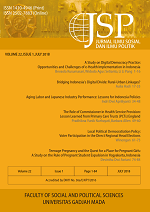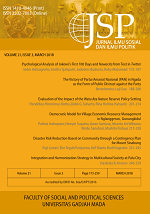The Role of Information and Communication Technology for Economic Sustainability through Social Entrepreneurship Practices in Indonesia: A Preliminary Study
Lisa Lindawati
Abstract
ICT provides an environment that encourages the development of social entrepreneurship. Regarding its definition, social entrepreneurship is the “ third way” of the two sectors running dichotomously: business entities that tend to be profitable and social institutions that are not profit-oriented. The social business carries out business activities with a social mission. Social movements were at different poles from profit-seeking efforts in the past, and digital technology enabled them to achieve them simultaneously. One of the supporting factors is its ability to reduce production, distribution, and even promotion costs. On the other hand, ICT allows social entrepreneurs to amplify their stories. There are no fundamental differences between commercial and social business activities. Both of them produce goods or services. The distinguishing elements are how they do business, the actors involved, and the eventual pursuit. If the commercial company tends to profit, social enterprise talks about social impact. Profit is a medium or tool to have a social impact on business. In the last five years, social entrepreneurship trends have maturated in Indonesia. This trend attracts researchers to take a deeper look at the sustainability aspects brought by social entrepreneurs. As preliminary research, this study explores how social entrepreneurship supports economic sustainability.
Keywords
ICT, economic sustainability, social entrepreneurship






















